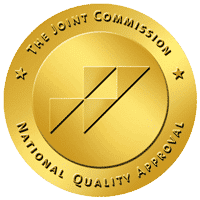
Meth-Induced Psychosis: How to Recognize It And What to Do About It


Soul Surgery

Crystal meth is a dangerous and addictive drug that impacts the brain and central nervous system. Short for crystal methamphetamine, this illegal drug is manufactured solely to distribute to those desiring to get “high.”
However, the drug has intense and severe side effects, including drug-induced schizophrenia and meth psychosis.
This blog will look at the following:
Someone who experiences meth-induced psychosis is likely to exhibit behaviors associated with psychosis. Healthline defines psychosis as a mental health disorder “characterized by an impaired relationship with reality.”
Research suggests that those that abuse meth regularly are 40 percent more likely to succumb to meth-induced psychosis or drug-induced schizophrenia. Those that use the drug long-term are more than ten times more likely to develop methamphetamine psychosis.
When someone uses meth, the drug goes to the brain fast. Once it reaches the brain, large amounts of dopamine get released, triggering immense euphoric feelings. But that “high” doesn’t last long. When it wears off, the person will experience intense cravings for more.
As they continue to use meth, they will need more of the drug to experience the intense “high.” Their tolerance increases, so they must use more meth to feel the same results. Long-term, this can cause the brain to short-circuit so-to-speak, causing meth-induced psychosis.
Some people experience visual, auditory, or tactile hallucinations or meth psychosis just a few months after using the drug regularly. Chronic meth users may not experience such symptoms until a year or more of use. Still, some develop psychotic symptoms after using meth once.
Risk factors for meth psychosis include those with a primary psychotic disorder like schizophrenia in the family. However, even if no one in the family is diagnosed schizophrenic, psychosis can occur when using methamphetamines. Even someone with no mental health issues can experience meth hallucinations, delusions, and other meth psychosis symptoms.
Not all methamphetamine psychosis symptoms occur at one time. It’s more likely that symptoms will occur gradually over time. If you or a loved one uses meth, learning the early signs of meth-induced psychosis can be beneficial. You can seek help and get addiction treatment before the symptoms worsen.
Those that have meth psychosis may struggle short or long-term. There’s no way to know how long a meth-induced psychosis will last. It could last a few hours for one person and a few months for another. Some people may only have symptoms once, perhaps experiencing meth hallucinations, and that’s all.
Also, note that sometimes methamphetamine psychosis symptoms occur when someone tries to abstain from crystal meth. Once they successfully stop using the drug, the psychotic symptoms stop.
The best route for treating drug-induced schizophrenia or meth psychosis is attending an inpatient or residential treatment center. Some addiction recovery and mental health experts can assist the person with detox and addressing the psychotic symptoms. You’ll have 24/7 care and help to contend with some daunting withdrawal symptoms. Sometimes medication can be prescribed to curb symptoms, too, such as antipsychotic medication.
Along with evidence-based treatment, you can meet with a mental health counselor to address any other issues that may be going on. You can also learn better addiction recovery, coping, and emotional management skills.
If you or someone you know is struggling with an addiction to meth or meth-induced psychosis, know that help is available. Identifying if it is meth induced or a mental health issue can be determined during treatment. Soul Surgery is a co-occurring mental health facility that can help. Call Soul Surgery today (833) 568-6619 and talk to an addiction specialist to discuss your treatment options.
Published On: November 18, 2020
Updated On: April 4, 2023







Take the first step in your journey to recovery.
"*" indicates required fields